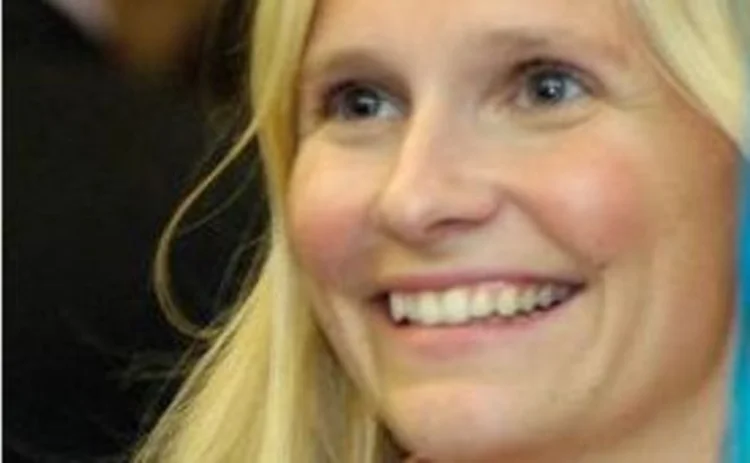Tine Thoresen: Thinking Big on Governance

I always start a new year with lots of ideas and plans for how to make this year the best year ever—perhaps a new Incisive Guide to Enterprise Data Management, or an Apple iPhone app for our reference data case studies? With new budgets and targets to meet, now is the obvious time to think big—at least, this seems to be the trend in the reference data market, where the new-year drive creates the perfect opportunity to review governance structures.
Firms are creating new job descriptions for roles they are looking to fill this year. In terms of organizational structures, the focus is on data governance initiatives aimed at improving controls, dealing with change, and ensuring accountability.
Challenge
The first challenge faced by firms managing these projects is often that the project itself appears to sit in the wrong part of the business. Data is often perceived as an IT function, as the data problems are typically only identified once they reach the systems being fed by the data. So for starters, firms need to stop pigeonholing data as an IT issue and start recognizing it as a separate function—or at least as a non-technical function.
The next step is to make someone accountable for the data. The challenge here is that reference data simply isn’t considered as exciting as, for example, a new swaps business. Thus, fewer people jump at the opportunity to “own” the data—and that is the primary reason why it ends up back in the IT domain. Some organizations have tried to change this by introducing dedicated chief data officers, but this job description still appears to be “under construction.” It is a maturing role, unlike the role of CIO or chief risk officer—both of which are now considered essential.
But with or without a data head, reference data is not like other data types. It touches almost all parts of the business—from the front office to settlement and custody. This means some of the changes in control being introduced as part of governance project workflows often include setting up a data committee comprised of different stakeholders. This type of group can also create a forum for sharing and addressing data issues in different parts of the business, and can help provide guidance on how best to prioritize projects.
Day-to-Day
Still, it’s unlikely that the committee will be involved on a day-to-day basis. It is the head of the central data operations group that will report to the steering committee. The central data group—an increasingly common feature at forward-thinking firms—may cover the entire lifecycle of data, from global data acquisition to the more operational aspects of data management. This setup, which helps facilitate cross-training between different data functions, can help the business meet client expectations for comprehensive and high-quality data. Data stewards can then be appointed to take ownership of different datasets, and ensure there is a go-to person for each data type. This team structure will then have to be communicated internally, and up-to-date information on data stewards will have to be made accessible in a central location.
In the current environment, end clients and regulators are looking for more data—and very detailed data, at that—resulting in an increased focus on data analysis and quality.
Governance plays a key part in meeting these requirements, and firms need to have a robust structure in place to be able to efficiently handle any 2011 data disasters or upcoming changes. By taking it seriously and driving projects forward, firms can ensure that market maintains the new-year momentum needed to think big.
Only users who have a paid subscription or are part of a corporate subscription are able to print or copy content.
To access these options, along with all other subscription benefits, please contact info@waterstechnology.com or view our subscription options here: https://subscriptions.waterstechnology.com/subscribe
You are currently unable to print this content. Please contact info@waterstechnology.com to find out more.
You are currently unable to copy this content. Please contact info@waterstechnology.com to find out more.
Copyright Infopro Digital Limited. All rights reserved.
As outlined in our terms and conditions, https://www.infopro-digital.com/terms-and-conditions/subscriptions/ (point 2.4), printing is limited to a single copy.
If you would like to purchase additional rights please email info@waterstechnology.com
Copyright Infopro Digital Limited. All rights reserved.
You may share this content using our article tools. As outlined in our terms and conditions, https://www.infopro-digital.com/terms-and-conditions/subscriptions/ (clause 2.4), an Authorised User may only make one copy of the materials for their own personal use. You must also comply with the restrictions in clause 2.5.
If you would like to purchase additional rights please email info@waterstechnology.com
More on Data Management
Geopolitics hits Middle East datacenters and firms’ operations
The IMD Wrap: Wei-Shen examines recent disruptions to AWS datacenters in the Middle East linked to the US-Israel strikes on Iran, and what it means for data and businesses operating in the region.
CME rankles market data users with licensing changes
The exchange began charging for historically free end-of-day data in 2025, angering some users.
Data heads scratch heads over data quality headwinds
Bank and asset manager execs say the pressure is on to build AI tools. They also say getting the data right is crucial, but not everyone appreciates that.
Reddit fills gaping maw left by Twitter in alt data market
The IMD Wrap: In 2021, Reddit was thrust into the spotlight when day traders used the site to squeeze hedge funds. Now, for Intercontinental Exchange, it is the new it-girl of alternative data.
Knowledge graphs, data quality, and reuse form Bloomberg’s AI strategy
Since 2023, Bloomberg has unveiled its internal LLM, BloombergGPT, and added an array of AI-powered tools to the Terminal. As banks and asset managers explore generative and agentic AI, what lessons can be learned from a massive tech and data provider?
ICE launches Polymarket tool, Broadridge buys CQG, and more
The Waters Cooler: Deutsche Börse acquires remaining stake in ISS Stoxx, Etrading bids for EU derivatives tape, Lofthouse is out at ASX, and more in this week’s news roundup.
Fidelity expands open-source ambitions as attitudes and key players shift
Waters Wrap: Fidelity Investments is deepening its partnership with Finos, which Anthony says hints at wider changes in the world of tech development.
Data standardization key to unlocking AI’s full potential in private markets
As private markets continue to grow, fund managers are increasingly turning to AI to improve efficiency and free up time for higher-value work. Yet fragmented data remains a major obstacle.







